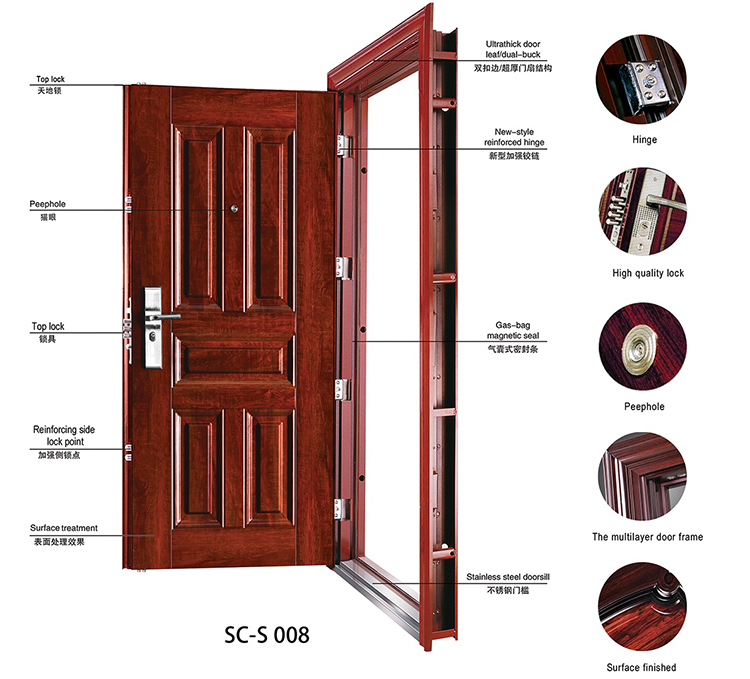7 Surprising Reasons Why Door Swing Directions Differ Around the World – Safety & Climate Secrets!

Have you ever noticed that some doors ope n inward while others swing outward? It’s not random—different countries have unique traditions, safety rules, and even weather-related reasons for how doors open. From fire safety laws to heavy snow blocking entry, the direction of a door can make a big difference. Let’s explore why doors swing the way they do around the world!
1. Fire Safety Rules: Outward Doors for Public Buildings
In many countries, public buildings (like schools, theaters, and offices) must have doors that open outward. Why?
✔ Safety First: If a fire breaks out, a panicked crowd can push doors open easily—no need to pull. This prevents deadly stampedes.
✔ Building Codes: The U.S., UK, and many European nations enforce this rule in fire safety regulations.
Example: After tragic fires in the early 1900s, laws changed to make outward-swinging doors standard in crowded spaces.
2. Snow & Weather: Why Northern Homes Use Inward Doors
In cold, snowy regions (like Canada, Russia, and Scandinavia), external doors often open inward. Here’s why:
✔ Snow Blockage: If a door opens outward, heavy snow can trap you inside!
✔ Tradition & Practicality: Inward doors are easier to shovel free in winter storms.
Fun Fact: Some historic Nordic homes even have double doors—an outer one that opens in and an inner one for extra insulation.
3. Cultural & Historical Influences
Different cultures have developed door swings based on history and beliefs:
✔ Europe (Inward Doors): Many old European homes had inward doors for defense—easier to barricade against intruders.
✔ Japan (Sliding Doors): Traditional homes use sliding doors (fusuma) to save space in small rooms.
✔ Middle East (Outward Doors): Some Islamic designs favor outward-opening doors to avoid bringing dirt inside.
4. Security & Burglary Prevention
Believe it or not, door direction can affect home security:
✔ Inward Doors: Harder to kick open (common in residential homes).
✔ Outward Doors: Easier to escape in emergencies but may need stronger hinges to resist forced entry.
Security Tip: In high-crime areas, reinforced outward-swinging doors with metal frames are becoming popular.
5. Space-Saving & Architecture
Small apartments and modern buildings sometimes prefer outward doors because:
✔ More Room Inside: No need to clear floor space for a swinging door.
✔ Wheelchair Access: Outward doors allow easier entry for people with disabilities.
Exception: In tight hallways, inward doors prevent blocking walkways when opened.
6. Wind & Hurricane Zones
In storm-prone areas (like Florida or the Caribbean), doors often swing outward for a surprising reason:
✔ Wind Pressure: Strong winds can seal an inward door shut, trapping people inside. Outward doors are easier to push open during hurricanes.
7. Superstitions & Feng Shui
Some cultures choose door directions based on beliefs:
✔ China (Feng Shui): Doors should open inward to “welcome good energy.”
✔ Ancient Rome: Outward doors were bad luck—they “let fortune escape.”
How to Choose the Right Door Direction?
If you’re building or renovating, consider:
✅ Climate (snow, wind, rain)
✅ Safety laws (fire codes)
✅ Space (small rooms vs. wide entryways)
✅ Security needs (burglary risks)
Final Thought
The direction a door swings might seem like a small detail, but it’s shaped by safety, weather, culture, and even superstition. Next time you walk through a door, take a second to notice—does it open in or out? There’s probably a fascinating reason behind it!








